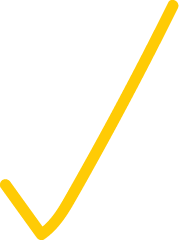Noga Gal from BettaSensing
November 2, 2021
BY Nina Lyhne

Meet Noga:
-
Postdoc at The Interdisciplinary Nanoscience Center at Aarhus University
-
Co-founder of the spinout BettaSensing, which has developed a flavor recognition technology for use in quality control of food and beverages
-
BettaSensing was spun out from Aarhus University just a few weeks ago in October 2021
How did the idea of becoming an entrepreneur arise?
In fact, I never planned to become either a researcher or an entrepreneur. When I did my PhD, I never planned for a future within academia. My plan was to go into the industry afterwards. But the Grand Solutions project I came to Aarhus University to work on as a postdoc was industry-centered, and this appealed to me. Part of the project was to create a startup – so I kind of got dragged into entrepreneurship that way. Even though I hadn’t planned to go in that direction, it was a great opportunity that I couldn’t say no to.
How did you get started with your entrepreneurial journey?
Since the startup was part of the research project, I was able to work on it within my regular working schedule in the beginning. We got a lot of encouragement from The Kitchen where we participated in Science for Society’s startup course. We also got in touch with Stella Spanou from Food eHub and EIT Food Seedbed, who gave us a push to apply for the EIT Food Seedbed incubator in May 2020. During that programme, we had to create a LinkedIn page, reach out to potential stakeholders, take part in pitching competitions etc. That really got us going! We were aware that our weak point was business development, but The Kitchen put us in touch with our co-founder and CEO: Pernille Ollendorf Hede and her team, who specialize in business development and have spun out with other research projects.
What has been the biggest challenge in the process?
Changing my mindset from an academic one to a more business-oriented one. For instance, it has been a challenge to explain the technology in a more general way that a broader audience can understand. During the first startup bootcamp I participated in, I had to make a 3 minute pitch – and this really helped me sharpen my presentation and take the scientific parts out of it.
What does a typical workweek look like for you in relation to combining your company with your research?
I still work full time as a postdoc, so I split my time between my research activities and the company. Luckily, you have a lot of flexibility as a researcher. I can go to a company-related meeting during the day and then go to the lab later. After COVID-19, many activities are online, which also makes it easier to manage. Of course, it requires a lot of planning, but my years of experience have sharpened my skills, and I have always been good at managing my time and getting things done.
How do you use your academic competencies from au as an entrepreneur?
As a researcher, you know how to find solutions to a problem. You become very good at troubleshooting and pinpointing the weak points of a project, which is a valuable ability as an entrepreneur as well. Another strength I have as a researcher is my collaborative mindset. Being a researcher, I often need to seek collaboration with other people. I have brought this mindset with me into entrepreneurship. Here, it has helped me realize that competitors are not necessarily competitors – maybe you can work together and achieve even more.
Where is the company today, and what are your dreams of for the future?
We finally registered the company a few weeks ago. This has been quite a long process, which turned out to be a bit more complicated than we had expected because I am an international.
Now we are looking for funding. Primarily we are applying for soft funding opportunities. Hopefully, we will have funding from the beginning of 2022, so I can go full time when my postdoc position ends. We want to create our minimal viable product (MVP) in collaboration with a company. Our goal is to have the MVP ready for test within a year – and to have a product ready for the market in 2024 or 2025. We have customers in many countries and are definitely looking into international markets.
Your best advice for researchers who are considering becoming entrepreneurs?
If you have a great idea, just give it a try and go for it! If you don’t succeed, you will have gained some valuable experience to bring with you into other projects.
And don’t be afraid to ask for help. No one can do everything on their own, and everyone knows the feeling of not being good enough. This is a really important message that I also try to inculcate to my students. When I first jumped into this, I was also afraid that I couldn’t do it – and I think this imposter syndrome is something many people struggle with, so we need to normalize the feeling and make it okay to ask questions or reach out when you need help.



